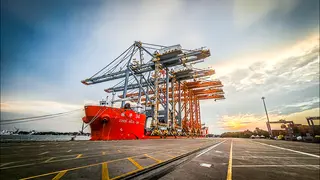Bhutan’s temporary withdrawal from BBIN (Bhutan-Bangladesh-India-Nepal) motor-vehicles agreement (MVA) dialogue may end up widening the scope of both bilateral and sub-regional cooperation.
Sripriya Ranganathan, Joint Secretary (Bangladesh and Myanmar) in the Ministry of External Affairs, refuses to call it a pull out.
“Bhutan was finding it a little difficult to ratify the agreement. We requested Bhutan to allow us (Bangladesh, India and Nepal) to proceed with implementation, while Bhutan is to complete the process. They have responded to our request,” she said at a Delhi Policy Group conference on Friday.
A senior Bhutanese observer concurred with Ranganathan’s views. India offered this option to Prime Minister Tshering Tobgay-led government keeping in mind the political compulsions of poll-bound Bhutan.
The bigger debateThe MVA has generated heat in Bhutan ever since it signed the deal, along with other BBIN nations, in June 2015.
Having unsuccessfully tried to ratify the proposal for more than a year, Bhutan finally declared last week that it was unable to proceed with the ratification process ‘for now’.
The Bhutanese fear that the implementation of the deal would lead to an influx of vehicles from other countries impacting its own transporters and degradation of environment.
Considering, Bhutan already has a bilateral arrangement for seamless vehicle movement with India, with whom it shares 90 per cent of the trade; the fears were over vehicles coming from Bangladesh and Nepal.
But according to Nihar Nayak, Research Fellow at Institute for Defence Studies and Analyses (IDSA), behind these fears lie a bigger debate on Bhutan’s foreign policy and how the nascent democracy should open up to the outer world.
The debate was triggered by Jigme Thinley, the first Prime Minister of democratic Bhutan during 2008-13, when he met the then Chinese Premier Wen Jiabao, at the sidelines of a UN conference in Rio in June 2012.
According to Chinese State media, Bhutan wanted to establish formal diplomatic ties with China.
This was a deviation from Bhutan’s century-old India-oriented foreign policy and, allegedly it was done without the approval of the influential Bhutanese King.
Thinley lost the 2013 polls. But his Peace and Prosperity Party – now led by Pema Gyamtsho – is the principal Opposition giving voice to the rumblings against BBIN MVA. The situation was particularly tricky for the Tobgay government as Bhutan’s relations with Nepal are strained. So opening doors to Nepalese vehicles might not have gone down well with the electorate.
To keep the focus on the issue of flooding of foreign vehicles and the resulting loss to its own transporters, Thimpu even stopped issuing permits to Indian commercial passenger vehicles since last week.
But India is unlikely to be concerned about this given its cordial bilateral relationship with Bhutan.
Short term disruptionsBhutanese observers, feel this is merely a short-term disruption that would benefit the BBIN cooperation agenda in the long run.
The country, they say, have merely pressed the pause button on the MVA dialogue but not on wider economic sub-regional cooperation initiatives including energy, water, and water transport.
Bangladesh recently invited Bhutan to use its waterways, a deal which can only be implemented if the BBIN multi-modal agreement comes into force.
Meanwhile a quick roll out of MVA between India, Nepal and Bangladesh (all of which have ratified agreement and, now need to make some cursory changes to justify Bhutan’s temporary exclusion) may pave way for Thimphu’s entry in the long run, as everyone is keen to get it back on track.
At a four-nation brainstorming last week, delegates from Nepal and Bangladesh were forthcoming in pointing out that BBIN MVA has given the option to Bhutan and other participants to apply a cap on the number of foreign vehicles entering their territory.







Comments
Comments have to be in English, and in full sentences. They cannot be abusive or personal. Please abide by our community guidelines for posting your comments.
We have migrated to a new commenting platform. If you are already a registered user of TheHindu Businessline and logged in, you may continue to engage with our articles. If you do not have an account please register and login to post comments. Users can access their older comments by logging into their accounts on Vuukle.